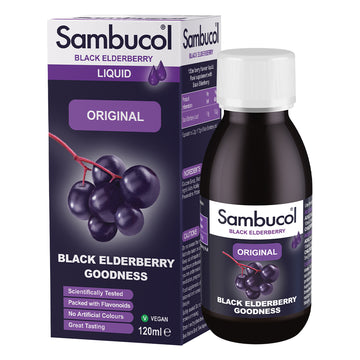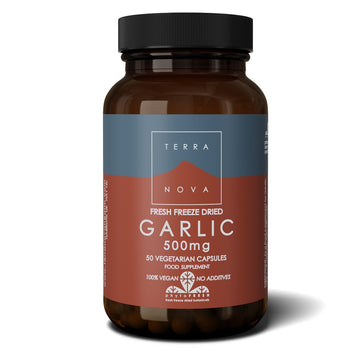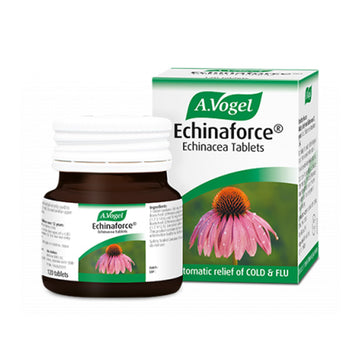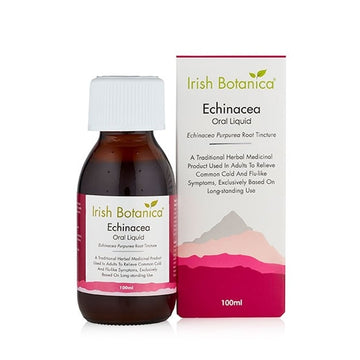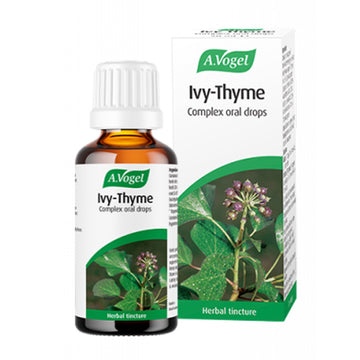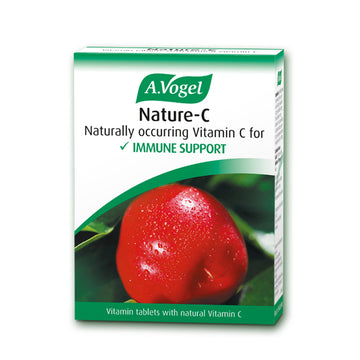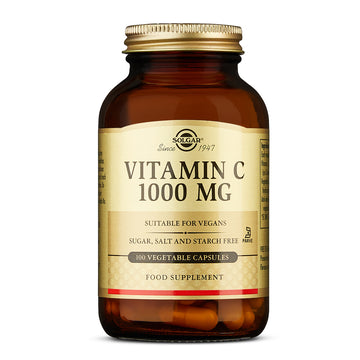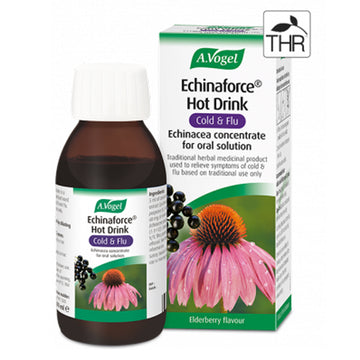Wondering how to get rid of a cough naturally?
We hear you. It can be hard to shake a cough sometimes. It can feel like it's going on forever and can effect everything from your mood to your sleep. Everyone is at risk of picking up a virus or bacteria which leads to a cough or chest infection, and vulnerable people may find it hard to recover.
No matter how often you wash your hands or keep your face covered, it can sometimes be impossible to prevent infection. If your cough isn't severe and going on weeks*, there are some natural cough remedies you can try.
Today we're sharing some of our favourite products and herbs to reduce the severity of the infection and help you get better quicker naturally. From trusted herbs like Echinacea to herbal teas and good old gargling salt water, here are some of the best ways to treat a cough naturally.
*It's always best to get medical advice if your cough is severe or persists after several weeks.
Why Do I Have A Cough?
A cough is a reflex action that temporarily clears the airways of mucus and irritants. Mucus or phlegm is the substance your body secretes to trap viruses, bacteria and other irritating substances. So basically, you NEED mucus to trap all the baddies and you NEED to cough it up to get them out of your body.
How to Get Rid of a Cough Fast
Elderberry Syrup
Elderberry syrup is a must when it comes to getting rid of a cough naturally. Syrups soothe the throat, ease a cough, and coat mucous membranes that are sore and inflamed. Elderberry can help clear catarrh lining the ears, nose, throat and chest and is also an immune-stimulant. Elderberry syrup tastes great and is easy to give to children, especially fussy ones! You could also try effervescent elderberry tablets, capsules or pastilles. Take a look at all our elderberry products here
Garlic
Anti-microbial garlic has historically been used against many types of bacteria and virus, in particular influenza, which is often the cause of a cough or chest infection. It thins mucus, so it can be very good for a chesty cough that isn’t producing any or much phlegm. Eating garlic raw is best, but for those who don’t want to do that (we understand!) tablets, softgels and capsules are available.
Top Tip: The active ingredient in garlic is a sulphur compound called allicin. This is only produced when the fresh garlic clove is crushed or chewed - so always crush fresh garlic before you chop it!
Echinacea
Historically, Echinacea has been used by the American Indians for more illnesses than any other plant. It has anti-bacterial and anti-viral properties. It stimulates the immune system to promote T-cell activation, which increases your immune capability. Echinacea comes mostly in tincture form (drops) although tablets are available plus lozenges and throat spray. Drops (diluted in water) are more easily absorbed and can also be gargled to help fight off any infection in the throat.
If you feel something coming on, if you have Echinacea to hand, try to take a dose every 2 hours. This really revs the immune system, hopefully lessening the extent of your cough in the first place.
Ivy and Thyme complex
Ivy and thyme are used in combination as a traditional herbal remedy used for coughs and bronchial tract infections. They are expectorant (they bring up phlegm) and demulcent - they soothe the delicate membranes in your chest throat and sinus. or A. Vogel Bronchoforce is ideal for chesty coughs as is Ivy and Thyme complex.
Pine
If you have a dry tickly cough, look for products using pine. A. Vogel Bronchosan pine cough syrup uses the young leaves of Picea abies (sometimes also known as the Norway Spruce and used for Christmas trees) which have long been used to help relieve coughs.
Vitamin C
Numerous studies have proven the effectiveness of vitamin C for prevention and relief of cold and flu symptoms. However, if you're already unwell one 500mg vitamin C tablet a day may not be enough to combat an infection. The key is to take 500mg maybe three times spaced out through the day.
The best way to get enough vitamin C for relief from coughs is to take food source capsules and to eat lots of vitamin C rich foods. Vitamin C rich foods include, kiwi fruit, broccoli, red peppers and kale. There are also a huge number of ways to take a vitamin c supplement - choose from effervescent tablets or powder, capsules, gummies, liquid and capsules
Take Vitamin D Regularly
Vitamin D is the new vitamin C. The vitamin D Council have stated that low vitamin D is linked to increased frequency of respiratory infections and coughs. They have also said that, supplementation of daily vitamin D can cut the severity and duration of a chest infection by a half. It is thought that 20% of over 50s are deficient in vitamin D. Also at risk of vitamin D deficiency are those who work inside, vegans, coeliacs and the elderly. As with the slightly-more-famous vitamin C it is available in a number of forms including tablets, liquid, spray and capsules.
Other great ways to get rid of a cough naturally
Up Your Water Intake
This is a healthy thing to do anyway, as it prevents dehydration, but it’s all the more important if you have an infection. If you’re dehydrated or overdosed on coffee, you’re slowing your immune system down and impeding your recovery.
Gargles and inhalations
When you gargle salt water, it helps dislodge phlegm from the chest and throat, and also brings down inflammation. If you have a sore throat or a cough, you should be gargling twice a day at least. A bronchial inhaler like Inhalo Bronchial Dry Salt Inhaler may also provide some relief.
Hot Drinks
As well as giving you some comfort from its warmth, plenty of drinks at Evergreen have medicinal herbs in them too which could help you feel a bit more like it. Try natural Cold & Flu drinks or herbal teas specially developed to support seasonal wellness.
Liquorice: Loosens and thins mucous, eases congestion.
Thyme: Relaxes muscles of the trachea and bronchi and opens up airways.
Lemon & Ginger: Warming and soothing on the chest.
All these teas are great as they keep your fluid levels up as well as having healing properties. If you have honey at home, add a teaspoon to your tea - manuka honey or raw honey is best as it has immune benefits.
Get Steamed
Never underestimate the effectiveness of steam inhalations. A few drops of an anti-bacterial essential oil such as tea tree, lemon or lemon- myrtle in steaming water will reach into the bronchial tract, sterilise and loosen out phlegm. Thyme oil also works well to open up airways as does eucalyptus or mint or a blend such as A.Vogel's Po-Ho Oil or Absolute Aromas Headaid Oil
Looking for some more tips when it comes to fighting bugs this winter? We've got some handy info to help you stay healthy this cold and flu season and take a look at our selection of natural remedies for coughs and colds.
Please note, this blog is for informational purposes only and should not replace medical advice.
It’s always best to consult your doctor before taking any new supplements, treatments or remedies if you are pregnant, breastfeeding or on medication.
Checked and updated: 6th September 2023



